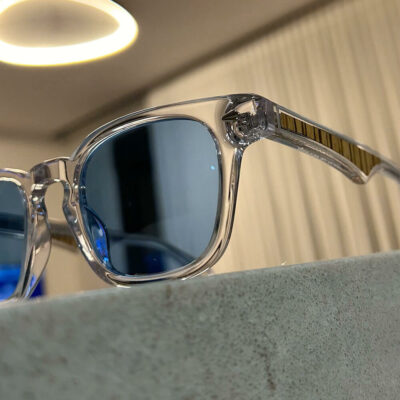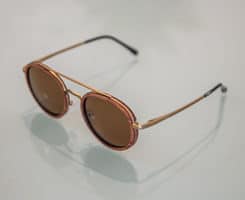✈ Free Shipping Worldwide
on orders over $75
In a world driven by innovation and scientific advancement, new terms and concepts seem to emerge at an ever-increasing pace. Among these, one term that has been garnering attention lately is “Bio-acatete.” But what exactly does this term entail, and why has it become a topic of intrigue and discussion? Let’s delve into the depths of this fascinating subject to uncover its meaning and significance.
What Makes Bio-acatete Unique?
Bio-acatete, at its core, refers to a revolutionary material that combines the principles of biocompatibility and versatility. Derived from natural sources or engineered in laboratories, Bio-acatete possesses unique properties that make it ideal for a wide range of applications, particularly in the medical field. Its biocompatibility ensures that it is well-tolerated by living organisms, minimizing the risk of adverse reactions or rejections—a crucial aspect in medical procedures and implantations.

How Does Bio-acatete Differ from Conventional Materials?
But what sets Bio-acatete apart from conventional materials? The answer lies in its ability to mimic the properties of living tissues, promoting integration and regeneration within the body. Unlike synthetic materials that may trigger immune responses or degradation over time, Bio-acatete offers a harmonious interface with biological systems, fostering healing and restoration.
The Beauty of Bio-Acetate Sunglasses
Sunglasses crafted from bio-acetate offer a stylish and sustainable alternative to traditional eyewear materials. Derived from renewable sources such as cotton or wood pulp, bio-acetate boasts impressive biodegradability and a reduced environmental footprint compared to petroleum-based plastics. Beyond their eco-friendly appeal, these sunglasses exude sophistication and durability, with frames that are lightweight yet sturdy. The versatility of bio-acetate allows for an array of designs, catering to diverse tastes and preferences. By opting for sunglasses made from this innovative material, individuals can not only protect their eyes from harmful UV rays but also contribute to a more sustainable future.
What Are the Potential Applications of Bio-acatete?
Moreover, the versatility of Bio-acatete opens doors to myriad possibilities in various industries. From biomedical implants to tissue engineering and drug delivery systems, its adaptable nature lends itself to diverse applications, promising breakthroughs in healthcare and beyond. Researchers and innovators are continually exploring novel ways to harness the potential of Bio-acatete, pushing the boundaries of what is achievable in modern science.
Embracing Sustainability with Bio-Acetate Sunglasses
Bio-acetate sunglasses offer a multitude of advantages, making them a compelling choice for the eco-conscious and fashion-forward individual alike. Firstly, bio-acetate is derived from renewable resources, such as cotton or wood pulp, reducing reliance on fossil fuels and minimizing environmental impact. This sustainable approach extends to the production process, which often involves fewer chemicals and lower energy consumption compared to traditional plastics. Additionally, bio-acetate sunglasses are lightweight yet durable, providing comfort and longevity without compromising style. One of the standout features of bio-acetate is its hypoallergenic properties. Unlike some synthetic materials, bio-acetate is less likely to cause allergic reactions or skin irritations, making it suitable for individuals with sensitive skin or allergies. This hypoallergenic nature is expressed through meticulous testing and certification, reassuring consumers of its safety and compatibility. In essence, bio-acetate sunglasses combine sustainability, durability, and hypoallergenic qualities, embodying a stylish and conscientious choice for eyewear enthusiasts.

Are There Concerns Surrounding Bio-acatete’s Safety?
However, with every new advancement comes questions and concerns. Some may wonder about the safety and long-term implications of Bio-acatete, especially regarding its interaction with the human body. Are there potential risks or unforeseen consequences that accompany its widespread adoption? Addressing these inquiries requires thorough research and rigorous testing to ensure the efficacy and safety of Bio-acatete in real-world scenarios.
What Ethical Considerations Does Bio-acatete Raise?
Furthermore, the ethical implications of Bio-acatete cannot be overlooked. As technology progresses, ethical dilemmas often arise regarding its usage and implications for society. How should we navigate the ethical landscape surrounding Bio-acatete, balancing the benefits of innovation with the need for responsible stewardship of scientific advancements?
In Conclusion: The Promise of Bio-acatete
In conclusion, Bio-acatete represents a remarkable fusion of biology and materials science, holding immense promise for the future of medicine and beyond. While its emergence may raise questions and provoke debate, it also underscores the relentless pursuit of knowledge and progress in our quest to improve lives and redefine the boundaries of possibility. As we continue to unravel the mysteries of Bio-acatete, one thing remains certain—it has the potential to shape the world in ways we have yet to imagine.





